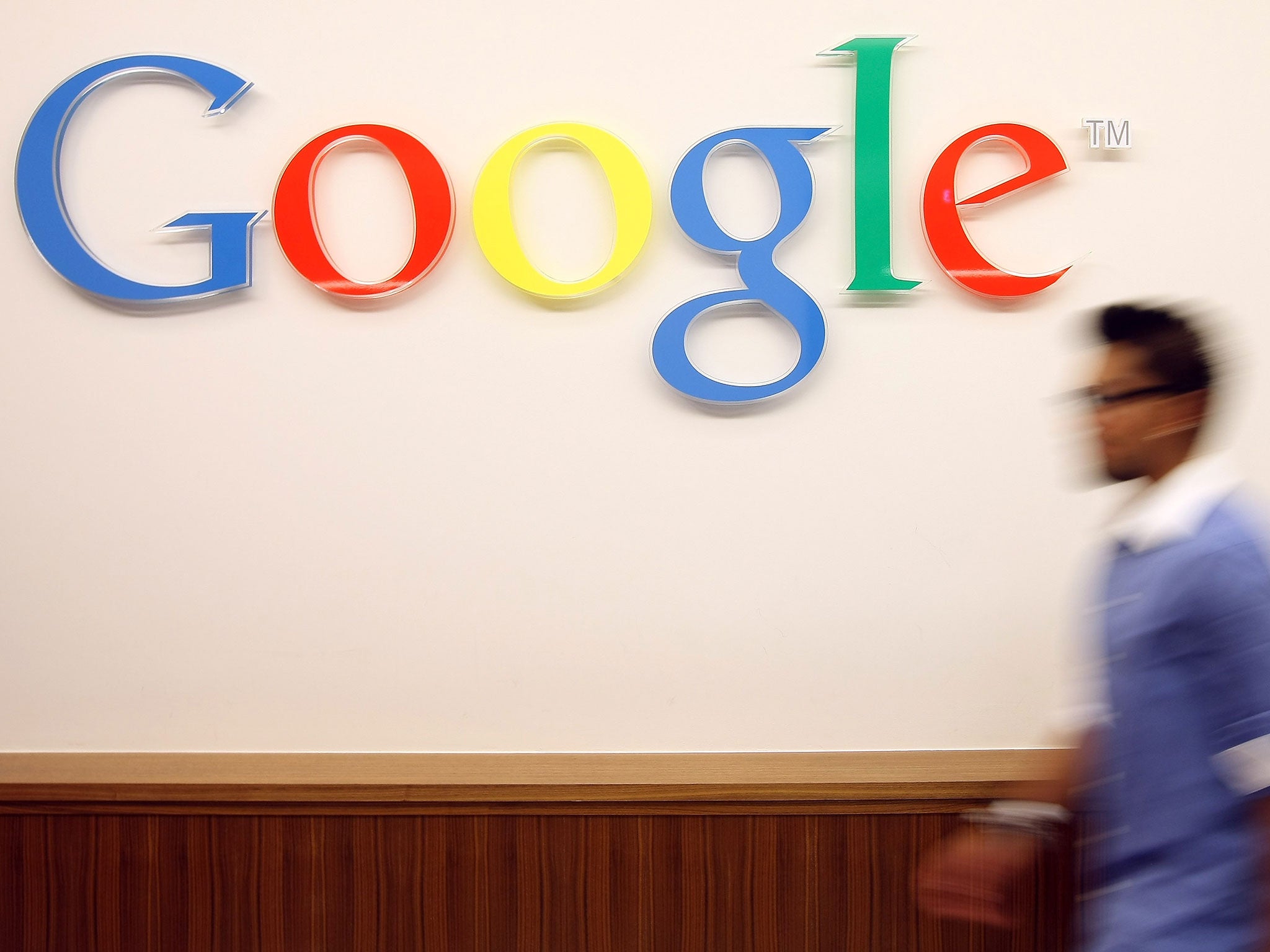Google: HMRC’s tax agreement with the internet giant is no victory
It smacks of more than a little desperation to come up with a figure it can claim it 'squeezed' out of a terrified giant

Your support helps us to tell the story
From reproductive rights to climate change to Big Tech, The Independent is on the ground when the story is developing. Whether it's investigating the financials of Elon Musk's pro-Trump PAC or producing our latest documentary, 'The A Word', which shines a light on the American women fighting for reproductive rights, we know how important it is to parse out the facts from the messaging.
At such a critical moment in US history, we need reporters on the ground. Your donation allows us to keep sending journalists to speak to both sides of the story.
The Independent is trusted by Americans across the entire political spectrum. And unlike many other quality news outlets, we choose not to lock Americans out of our reporting and analysis with paywalls. We believe quality journalism should be available to everyone, paid for by those who can afford it.
Your support makes all the difference.The Chancellor, George Osborne, has been quick to claim the tax deal that HMRC reached with Google is “a major success” – fruit of the Tory government’s determination to get tough on multinationals ducking their taxes by shifting profits round the globe.
In the cold light of day, coaxing £130m in back payments out of Google over a period of 10 years looks less impressive. Indeed, it smacks of more than a little desperation on the part of HMRC and the Treasury to come up with some kind of figure that it can claim it “squeezed” out of a terrified giant. After all, this is no high-street chain but a global corporation with an annual turnover of about £40bn, around 10 per cent of which is generated in the UK. However you tot up the profit margins, Google seems to have emerged remarkably lightly compared to “ordinary” taxpayers. The fact that we also have no idea how this figure was reached vindicates the demand of the shadow Chancellor, John McDonnell, for the National Audit Office to look at how it came about. There is a distinct lack of transparency here.
No one doubts that getting cash out of the multinationals is tough – and the aggrieved tone that Mr Osborne has adopted in response to Labour’s criticism suggests he genuinely believes he did well in getting any back money out of Google at all. These giants excel at avoiding tax and – whatever their appealing-sounding mantras about saving and uniting the world – are utterly unscrupulous when it comes to going about it. Facebook has long channelled most of its profits, wherever they are generated, first to Ireland and then on to tax havens such as the Cayman Islands in the form of royalties.
What is just as inexcusable as these companies’ behaviour is the way governments in Europe have relentlessly undercut each other when it comes to taxing multinationals, competing to cut so-called sweetheart deals with the giants in order to lure them to their own turf. Starbucks has benefited from one such cosy deal on tax levels with The Netherlands since 2008. Fiat reached a similar arrangement in 2012 with Luxembourg, a notorious offender on the tax front and “home”, among others, to Amazon. It is thanks largely to these and other arrangements that Google was able innocently to tell the US Senate last year that, if it paid a derisory figure on its profits, it was because of “the way the global tax system is working”.
Life may be getting a little tougher for the accounting wizards shuffling profits round the world on behalf of the multinationals, however. This is not down to Mr Osborne’s efforts so much as those of the EU competition authorities who for some years have been taking a closer look at the arrangements used by Amazon and Fiat in Luxembourg, Apple in Ireland and Starbucks in Holland.
Last October, the Competition Commissioner, Denmark’s Margrethe Vestager, ordered the Dutch to recover an extra €20m to €30m (£15m to £23m) from Starbucks and told Luxembourg to extract a similar figure from Fiat. The figures sound symbolic but the rulings are still an important first blow struck at the system of profit-shielding. Six months earlier, the EU unveiled another reform, the Tax Transparency Package, which obliges all member states to exchange information on tax deals they reach with multinationals every three months.
From that perspective, there must be concern that Britain is undermining the Europe-wide drive to get these giants to pay more in tax by unilaterally cutting yet another mysterious-looking deal. Mr Osborne’s victory talk will sound more plausible once Britain and its European partners resist the temptation individually to reach such agreements in favour of a Europe-wide approach based on transparency in tax affairs. Then, the giants really will have cause to worry.
Join our commenting forum
Join thought-provoking conversations, follow other Independent readers and see their replies
Comments